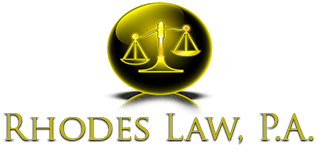What's the Buzz About Estate Planning?

Hey there, have you heard the buzz about estate planning lately? It's been causing quite a stir! You see, people are beginning to realize just how crucial this often overlooked aspect of financial management is.
Estate planning isn't just for the wealthy or elderly anymore - it's something that everyone should consider at any stage in life. Why? Because we all want our loved ones taken care of and our assets distributed according to our wishes after we're gone.
But here comes an even more interesting part: Estate Planning can also help avoid potential family disputes over inheritance and save your dear ones from hefty taxes or legal complications down the line. Sounds pretty compelling right?
Now, imagine having peace of mind knowing that everything will be handled exactly as you intend when you're not around anymore – no confusion, no conflict among those left behind; only clear instructions carried out precisely.
So, what’s stopping us from taking action now? Maybe it seems too complex or time-consuming... But let me assure you - with proper guidance and support, estate planning doesn’t need to be a daunting task!
If understanding its importance has sparked an interest within you (which I'm sure it did!), then don't wait another minute! Start exploring options today because every moment counts when securing your legacy for future generations.
Let's Talk Money and Assets: Breaking It Down
Hey, let's face it. Money and assets are often a touchy subject, right? But when we're talking about estate planning - that is, deciding who gets what - they become incredibly important.
Now, hold on! Before your eyes glaze over from boredom or fear at the thought of dealing with such heavy topics like wills and trusts...think about this for a second. What if I told you that having an estate plan could mean less stress for your loved ones in their time of grief? Or even better – more money left behind to support them?
Imagine being able to pass down not just physical possessions but also financial security to those closest to you. That dream house where all family gatherings happen can stay within the family; savings accumulated over years won't be eaten away by taxes or legal fees either!
So, why wait any longer? Let’s break down these walls around 'money talks' together now! Start thinking about how Rhodes Law, P.A. can help streamline this process—making sure every penny counts—for peace of mind today AND tomorrow.
Avoiding Legal Hassles: Why You Need a Plan
Nobody enjoys dealing with legal hassles, right? They can be time-consuming and stressful. But guess what? There's a way to avoid these headaches when it comes to managing your estate - all you need is a solid plan!
Estate planning might sound like something only the ultra-wealthy need worry about, but that couldn't be further from the truth. In reality, everyone has an 'estate' in one form or another – whether it’s your home, car, investments or even personal possessions such as jewelry or artwork.
Now, imagine this scenario; if something unexpected were to happen without having an estate plan in place - chaos ensues! Your loved ones are left scrambling trying to figure out who gets what and how much. This situation often leads to family disputes which could have been easily avoided by drafting up a simple will ahead of time.
So, why wait for trouble when you can nip it right in the bud today? Start crafting your estate plan now! It not only gives you control over where each part of your hard-earned property goes after you're gone but also ensures peace among those left behind handling affairs on behalf of their departed loved one.
Peace of Mind in Uncertain Times: Benefits of Estate Planning
In these unpredictable times, who wouldn't want a little peace of mind? That's exactly what estate planning can provide. When the world feels like it's spinning out of control, taking charge in areas where you can make a difference is empowering. Estate planning lets you do just that—it gives you full authority over your assets and how they'll be distributed after your passing.
Now, let’s pique your interest with some hard facts: without an estate plan in place, state laws govern how property gets divided up upon death—often resulting in outcomes far from what one might have wished for their loved ones! With an effective plan set ahead though, this heartbreaking scenario can easily be avoided.
Imagine having total confidence knowing that no matter what happens tomorrow or ten years down the line; there are solid plans to protect both yourself and those dear to you. Envision feeling secure today about future financial matters because all has been taken care of meticulously through careful strategic planning—that’s precisely the desire we wish to fulfill!
So, why wait? It doesn’t matter whether your fortunes include vast real estates or modest savings accounts; everyone benefits from creating an efficient estate plan tailored specifically for them. So, take action now! Start by reaching out to trusted expert like Ruth Rhodes who specialize in this field— she will guide you every step along this important journey towards securing peace amidst uncertainty. Call Rhodes Law, P.A. today at (321) 610-4542 for your your free consultation!
You might also like




